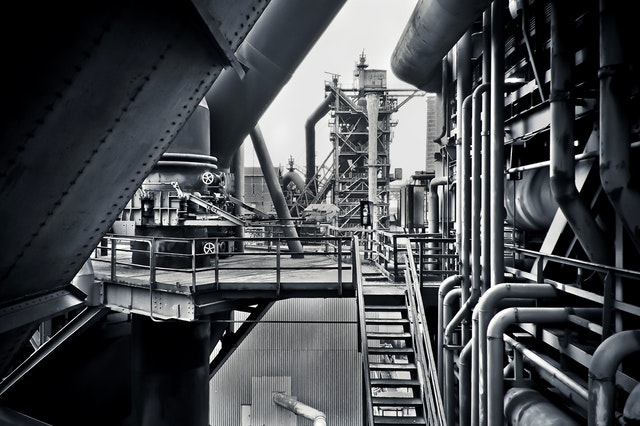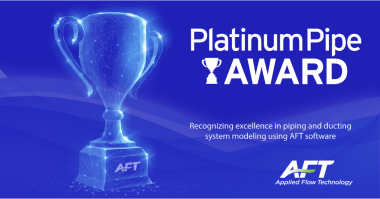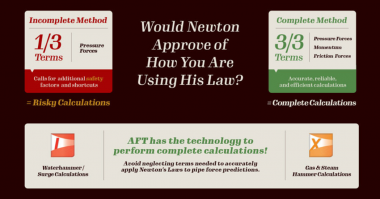Author: Dylan Witte, Applied Flow Technology
You may have heard, “there is never enough money to do it right the first time, but there’s always enough money to fix it after it’s broke”. As engineers and project managers it is our responsibility to provide safe solutions to complex problems in an economy that typically gives jobs to the lowest bidder. Often these two ideas, safety and cost, seem to be at odds with each other. The more time put into insuring safety can rise costs to an unviable level and often times a “sweet spot” must be reached. One cost saving measure in piping design is to forego a water hammer analysis and is further discussed in a previous blog: “Should Engineers Always Perform Waterhammer Analysis of New Pipe Systems?”. I want to further discuss this in the light of my consulting experience at Purple Mountain Technology Group(AFT’s consulting sister company).
The first question an engineer or consultant must ask themselves is what value does a water hammer analysis add for your company or client? Typically, it will not make a project more profitable, but in many cases it could reduce costs if the system is over-designed. Mainly it is insurance that changes in operation will not result in catastrophic failure or often times it is simply done to comply with ASME codes.
The above categories are what I will call preventative studies. They are done before a surge event that resulted in an unforeseen loss of life, environment, or property. Studies that occur after a loss are in the category of reactionary. Reactionary studies are never ideal, but will always be around given the fallibility of humans (yes, even us engineers can make mistakes). There always seems to be 100 different decisions to make and it is not always obvious which ones are correct. How do you avoid being in the reactionary category, but avoid the costs of a comprehensive surge study?
The answer is balance and a more complete view of waterhammer. Some simple systems can be analyzed with a basic surge study using the Joukowsky equation to predict the maximum surge pressure possible assuming an instantaneous change in velocity.
Where
ΔP is the magnitude of the pressure wave
ρ is the density of the fluid
a0 is the wavespeed
Δv is the change in the fluid’s velocity
This is often times considered conservative, as an instantaneous closure will generally result in the maximum pressure rise. This is a quick way to save money and have a better feel for how a system will behave. However, this assumption neglects factors such as column separation, cavitation, and system interaction. It is important to be aware of these limitations as you can quickly get into trouble using Joukowsky on systems with multiple flow paths, interacting components, or operating pressures near vapor pressure. If you have a complex system with many interacting components such as pumps, check valves, and surge mitigation devices, using the Joukowsky equation will simply not tell you how a system will react.
Another important aspect of a detailed surge analysis is that it can evaluate alternative methods of surge mitigation. One example is alternative valve closure timings, which could potentially save millions of dollars. Simply using the Joukowsky equation may indicate that more expensive forms of surge relief are necessary, normally in the form of additional surge tanks and relief valves. Recently PMTG saved a client $1.25 million by implementing the use of a variable valve closure rate rather than adding new surge relief equipment.
Clearly, waterhammer is not to be taken lightly and a preventative analysis is preferable to a reactionary analysis. If you have a system were down time is unacceptable or there is potential for loss of life, environment, or property be sure to complete a waterhammer analysis.






Comments